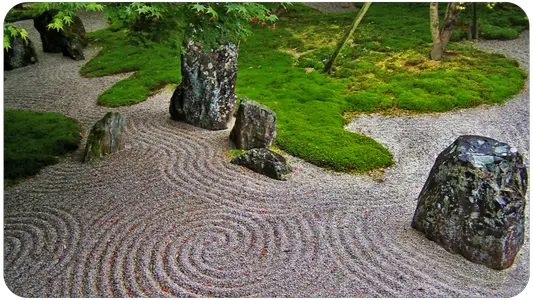Karuṇā (IAST; devanāgarī: करुणा) in Pāli and Sanskrit, Tibetan: སྙིངརྗེ, Wylie: snying-rje, THL: Nyingje; translated into French as compassion or "tenderness, affection, " is central to Buddhist thought in general, and to Mahāyāna Buddhism in particular. It is one of the Four Incommensurables (apramāna), also called the Residences of Brahma (brahmavihāra).
In the theravāda
Compassion is found in at least two distinct uses in Theravāda Buddhism. The first is related to Śākyamuni Buddha, since he was born out of compassion for the world. Indeed, the tradition conveyed by the canonical texts is that, after attaining enlightenment, Śākyamuni hesitated to teach and eventually did so, but only out of compassion for beings.
The second usage applies to monks. In this framework, compassion is most often understood as one of the Four Incommensurables (apramāṇa). Karuṇā is then associated with the other three immeasurables: benevolence (maitrī), equanimity (upekṣā), and joy (muditā).
These feelings or thoughts form the basis of a spiritual exercise whose purpose is to reduce harmful thoughts. Compassion, in particular, focuses on reducing harmfulness (vihiṃsā).
In the mahāyāna
A fundamental notion of the mahāyāna, compassion must be linked to the notion of bodhisattva (being [destined for] awakening) and bodhicitta, the mind of awakening.
The bodhisattva is a person who vows to attain enlightenment (bodhi) and not to abandon beings to their suffering but instead to devote all his or her energy to helping them find a way out.
"Having understood that the whole world is consumed in this way by the flames of the fire of suffering, [the bodhisattva] will reflect, 'Just as I do not like suffering, neither do others,' and he will cultivate mercy (kṛpā) toward all beings without exception. "
Thus, unlike theravāda, the quest of the mahāyāna is less nirvana than awakening. On the long path to awakening, thanks to the exercise of the notion of emptiness (śūnyatā), the bodhisattva will gradually come to see that beings and things have no existence of their own, no existence in themselves. From then on, there is no such thing as a "real" being.
From then on, there is no longer, strictly speaking, any particular being for whom the bodhisattva could sympathize; the bodhisattva manifests a spontaneous and unconditional compassion that is no longer fixed on a particular subject; it is no longer an ephemeral feeling, but a state of life. This is referred to as great compassion (mahākaruṇā).
Personification and representation in Buddhism
Śākyamuni, the historical Buddha, is traditionally considered a compassionate Buddha. Avalokiteśvara, whose name means "lord looking down" (Tibetan Chenrezig, Japanese Kannon) is a bodhisattva associated with compassion. In Tibetan tradition, the Dalai Lama is considered an incarnation of Chenrezig.





